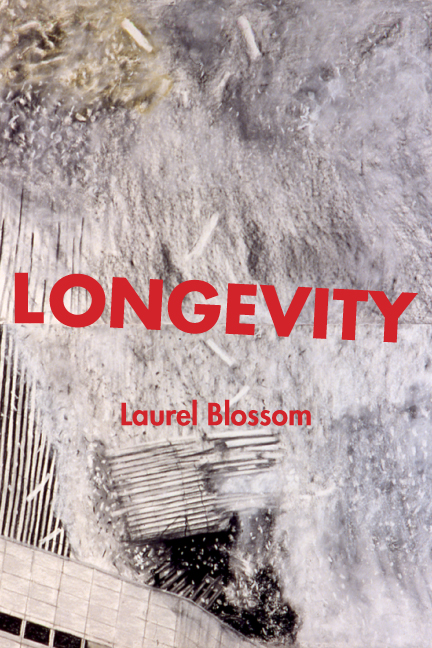
paper • 72 pages • 15.95
ISBN-13: 978-1-935536-62-8
Longevity is a book-length narrative, a fictional prose poem told in fragments and in the heightened language of poetry, making it accessible to the general reader and the poetry aficionado alike. Longevity deals with the protagonist’s relationships with the women in her life and the deaths of those women: her mother, her best friend, her sister. Longevity is told in reverse, starting with the present and working back to the birth of the younger sister, which was the beginning, for the speaker, of both memory and loss.
Excerpt from “The Longevity of Bone”, from Longevity:
8. Where it says I, it means me. Where it says she, it means Margaret or Lucy or my poor mother. Where it says she, it means said. It means dead. Not that she was such a good guide, but I miss my mother.
The market had its worst week, points dropped, ever.
Watch a Special Video from the Author
“Dreams are ways in which we can see what we sometimes don’t want to see, where in some brief truce we might work out our human conditions. Blossom’s book-length poem Longevity achieves such translation: bordering the longed-for and the ill-gotten, a speaker sorts out her survivorship: a sister, a mother, a dear one. This poem skirts 9/11, family and the degradation of the body in time and illness, as ‘Memory catches on the sprockets of grief.’ Elsewhere the poet declares ‘Everything is elegy’ as she hovers around the longitudes of place, of intersection, of what is outlived, as if our human fragments make up a solution.” — Sophie Cabot Black
“These poems spiral like a Moebius strip and yet they remain one-sided: a single surface that shifts, glittering, away from ‘factual’ perspective. An historical national tragedy is both back-and-foregrounded here, as other surfaces (stock prices, fashion, sibling rivalry) are brightly illuminated, then slowly twist away. In Laurel Blossom’s Longevity, we share a survivor’s guilt for deaths both imagined and experienced–a falling away from love, a piecing-together of fragments of memory, a lyrical book-long dream-meditation on trauma, transgression–and how, in desire and empathy, we fashion from loss the shapes that sustain us.” –Carol Muske-Dukes
“The fallen Twin Towers are ghostly sentinels that loom over Laurel Blossom’s haunting meditation on history, identity and grief. Longevity oscillates between collective loss and personal anguish, and in Blossom’s telling, one particular body becomes every body, and individual loss encompasses everyone. The body’s extreme ephemerality is juxtaposed with its tenacity. Blossom explains that ‘the body loves being alive, no matter what.’ and she reveals how a body persists and endures in the bodies of others: a mother survives in her children, a woman reappears in a sister’s smile. Longevity‘s narrative arc possesses the range, density and richness of a novel, but Blossom’s long poem is buoyed by an elegant lyricism that is wrenching in its musicality. The poem’s style and structure seem so inevitable, it would be easy to overlook the audacity of the book’s project, which is nothing less than to salvage our dead. In this wise, generous, heartbreaking book, ‘Everything is elegy.'” — Gary Young
“Laurel Blossom’s narrative prose poem, Longevity, is a stunner, one of the important book-length poems of the 21st century.” — Miriam Kotzin, Per Contra
“Poetry makes it possible to juggle chronology without explanation, not in order to be surreal or fashionably tricky, but in order to express truths of experience, especially at times of grief.” — American Book Review